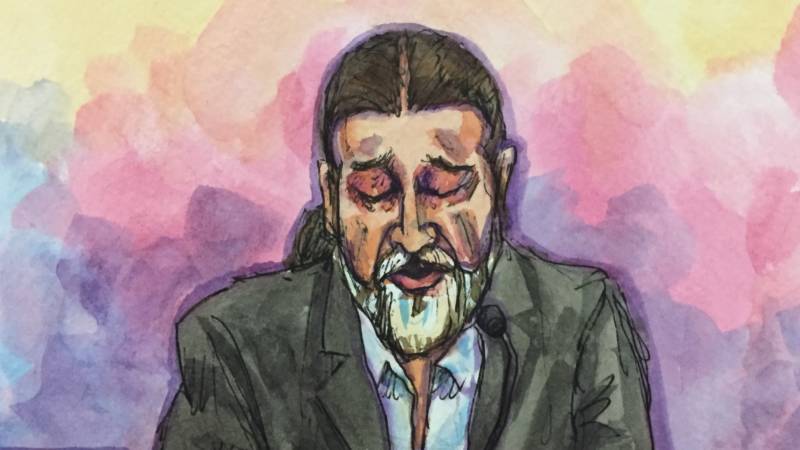James asked Almena if he blamed the Ng family, landlords of the Ghost Ship, or a number of individuals who had performed work at the warehouse.
“I’m not blaming anyone,” Almena said, adding that the statement to KTVU had been taken out of context. He said "blame" was not the correct word he had intended to use.
Tony Serra, who represents Almena, said outside court that Almena was being sarcastic when he spoke of "pointing and blaming."
Serra also said outside court that there should be no criminal defendants in the case.
"This is a matter that normally is adjudicated in the civil courts," Serra said. "This is a precedent case because they're going criminal negligence on, you know, an unintended event."
The prosecution finished cross-examination Thursday and the defense rested its case following questioning from Curtis Briggs, who represents defendant Max Harris, and additional follow-up questioning from James.
Almena and Max Harris, who has been described as creative director or second-in-command at the Ghost Ship, each face 36 counts of involuntary manslaughter following the deaths of 35 concert-goers and one tenant on the night of a Dec. 2, 2016, electronic music party. They each face up to 39 years in prison.
The prosecution has argued that Almena and Harris illegally converted the warehouse into an unsafe living space stuffed from floor to ceiling with flammable building materials, and that they didn’t install proper safety measures such as sprinklers, fire alarms and well-lit exits.
James questioned Almena about the lease he signed in November 2013 that indicated that no subleasing was allowed in the warehouse. But Almena said that was on paper only.
“I got permission from the landlords on the phone before I even signed the lease," Almena said. "It was very well-known I was going to sublet.”

